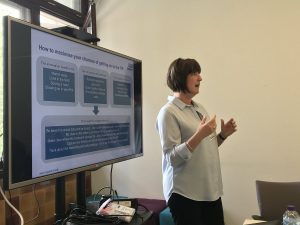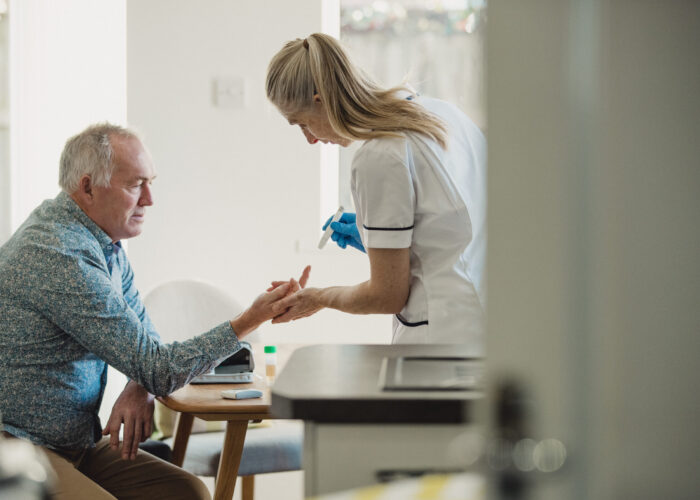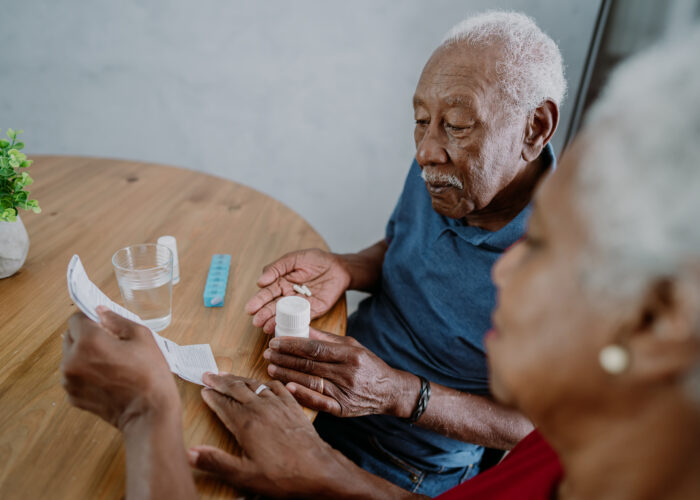 A recent Industry Learning Lab event held by ICHP provided essential guidance on the preparation needed for a successful application to the NHS’s Innovation and Technology Payment (ITP) programme.
A recent Industry Learning Lab event held by ICHP provided essential guidance on the preparation needed for a successful application to the NHS’s Innovation and Technology Payment (ITP) programme.
The programme identifies and funds innovative medical devices, digital platforms and technologies and aims to achieve the most cost-effective and wide-reaching impact on patient care while maximising learning and fostering culture change.
To be accepted onto the programme an innovation must be market-ready, already in use in the NHS, evidence-based and able to show a return on investment within one year. Ideas should be designed to solve a need and must have all the required regulatory approvals and a compelling (and replicable) business case.
‘Insider’ information
The Learning Lab event was designed to educate SMEs and those supporting them to understand the requirements for a successful bid, and to learn more about the support that ICHP, as an academic health science network (AHSN), can offer applicants. Kathy Scott, Deputy Director of Innovation, NHS England (NHSE), was there on the day to share her expertise. She explained that while real-world data and a robust evidence base are crucial, they should be proportionate, and AHSNs like ICHP can advise on what is sensible. There should also be a solid economic benefits case – again something that ICHP can help to demonstrate.
Key messages from Kathy included:
- SMEs and start-ups need to engage with AHSNs and mobilise NHS champions – NHSE will ask them what they think about the innovation.
- Cases should be built on actual data and should be honest – NHSE do check.
- Be upfront about any wider costs such as staff training.
- Be clear about where costs and savings fall.
- Demonstrate a plan for when the ITP ends and the funding stops.
- Think about sales strategy – the AHSNs are great but they can only do so much.
- Consider real world data – the more the better, but ask advice from your AHSN as to what is sensible for your product.
The need for evidence and related data was a key element during the day, with ICHP’s analytics lead, Julia Wilkins, presenting on how ICHP can help innovators to meet the ITP requirements through unrivalled access to data sources, expert data analytics and compelling visualisations of the evidence.
She said: “As an academic health science network, supporting IT-based innovation is a special interest and very important to us. We’re affiliated to digitalhealth.london, a programme aiming to speed up the development and scaling of digital innovations across health and care.”
ICHP’s access to data is unrivalled, even among AHSNs, which offers a big advantage to SMEs. Amongst other resources the team can draw on 10 years’ linked HES data and the North West London Whole Systems Integrated Care (WSIC) database – a unique system which links primary, secondary, mental health and social care data for over two million people and 370 GP practices in North West London.
“Thanks to our access to this data, our business intelligence team can help SMEs demonstrate the potential of a new idea to deliver real value across the whole health and care system, giving an innovation the best chance of being adopted by the NHS through a robust and persuasive business case,” added Julia.
A real insight into NHSE requirements
Lucy Kirkpatrick, principal and founder of MedTech Strategies Ltd, a consultancy specialising in providing advice and support to SMEs on getting innovations into the NHS, said: “This event was very helpful as it offered a real insight into what NHSE are looking for. It’s important in the early stages for SMEs and their advisors to understand the need for good quality evidence and meeting other criteria such as being market-ready and being used in the NHS. Innovations are competing for the same finite budget, so a good understanding of what NHSE are looking for is critical.”
“The ITP is a useful initiative for companies needing a leg-up for getting adopted, but they need evidence to support their value story and business case. There’s an enormous opportunity here for ICHP to support SMEs to achieve that evidence through benchmarking, mapping the current care pathway and modelling how an innovation may disrupt that pathway in a positive way for patients and the NHS.”
Just getting onto the ITP shortlist is beneficial; there is talk of an evidence fund being created to support shortlisted organisations which NHSE felt had a strong case but which lacked enough evidence. The fund could be used to help collect that evidence, with support from organisations such as ICHP.
Those wishing to submit an innovation to next year’s ITP programme must do so by September 2018.



